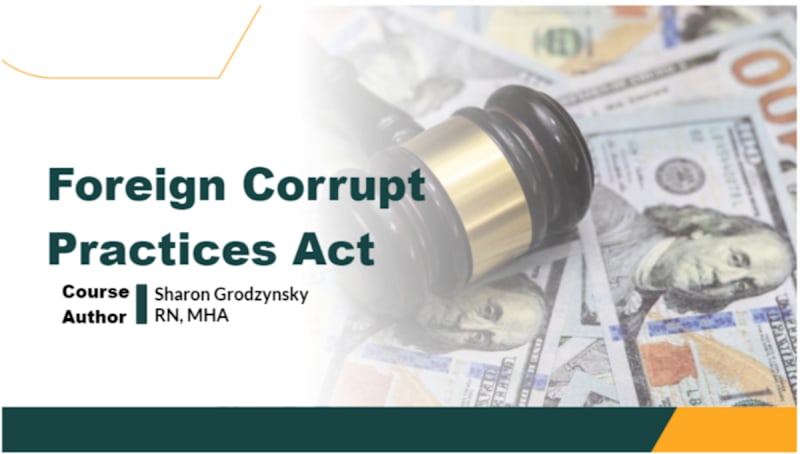What you'll learn
- Describe the history behind The Foreign Corrupt Practices Act (FCPA) and why it was established.
- List the main provisions of the FCPA
- Define key terms including
- List persons subject to the FCPA
- Discuss the risks of non-compliance with the FCPA and how the FCPA is enforced.
- Describe the specific requirements of the FCPA and how individuals may knowingly or unknowingly violate provisions of the law.
- Discuss the necessity for, and implementation of, solutions in support of Anti-Bribery and Anti-Corruption.
Course Description
The Foreign Corrupt Practices Act of 1977 (FCPA) is a United States federal law known primarily for two of its main provisions, one that addresses accounting transparency requirements under the Securities Exchange Act of 1934 and another concerning bribery of foreign officials. FCPA was enacted primarily for the purpose of making it unlawful for certain classes of persons and entities to make payments to foreign government officials (including publicly-funded health care professionals) to assist in obtaining or retaining business.








